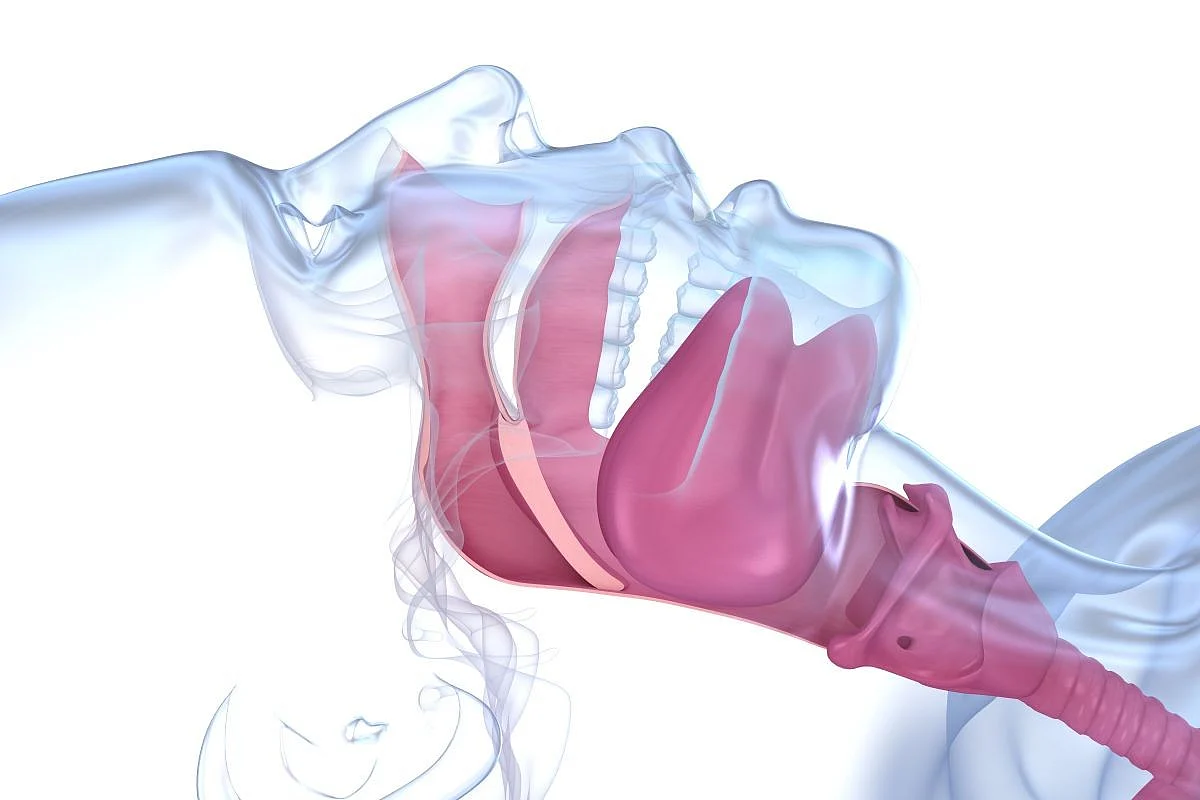Blowing Conch Shell Tied to Improved Obstructive Sleep Apnea Measures
By Lori Solomon HealthDay Reporter
MONDAY, Aug. 11, 2025 -- Respiratory muscle training through shankh (conch shell) blowing improves outcomes in individuals with obstructive sleep apnea (OSA), according to a study published online Aug. 10 in ERJ Open Research.
Krishna K. Sharma, M.D., from Eternal Heart Care Centre and Research Institute in Jaipur, India, and colleagues randomly assigned individuals with moderate OSA to a sham procedure group (deep breathing exercise; 16 patients) or to a shankh-blowing group (14 patients) for six months.
The researchers found that participants in the intervention group showed greater improvement in sleepiness, with a 34 percent reduction in the Epworth Sleepiness scale (ESS; change, −5.0 points), as well as a significant change in the mean difference of the ESS score (−4.69 points) between the groups. At six months, sleep quality (Pittsburgh Quality of Sleep Index score [PSQI]; change, −1.8 points) and the apnea-hypopnea index (AHI; change, −4.4 events/hour) were improved in the intervention group. The mean between-group difference was −3.1 points for the PSQI score and −5.62 events/hour for the AHI.
"The way the shankh is blown is quite distinctive. It involves a deep inhalation followed by a forceful, sustained exhalation through tightly pursed lips," Sharma said in a statement. "This action creates strong vibrations and airflow resistance, which likely strengthens the muscles of the upper airway, including the throat and soft palate -- areas that often collapse during sleep in people with OSA."
Disclaimer: Statistical data in medical articles provide general trends and do not pertain to individuals. Individual factors can vary greatly. Always seek personalized medical advice for individual healthcare decisions.
© 2025 HealthDay. All rights reserved.
Posted August 2025
Read this next
Prostate Cancer Incidence Trends Increasing
WEDNESDAY, Sept. 3, 2025 -- Prostate cancer incidence is increasing, according to a report published online Sept. 2 in CA: A Cancer Journal for Clinicians. Tyler B. Kratzer...
Prefrontal Cortex Can Be Safely Biopsied During Deep Brain Stimulation
WEDNESDAY, Sept. 3, 2025 -- Obtaining a prefrontal cortex (PFC) biopsy during deep brain stimulation (DBS) procedures is safe, according to a study published online Sept. 3 in...
Peer Review, Editorial Process Yield Improvements in RCT Abstracts
WEDNESDAY, Sept. 3, 2025 -- Peer review and the editorial process yield frequent improvements in research abstracts of randomized clinical trial (RCT) reports, according to a...
More news resources
- FDA Medwatch Drug Alerts
- Daily MedNews
- News for Health Professionals
- New Drug Approvals
- New Drug Applications
- Drug Shortages
- Clinical Trial Results
- Generic Drug Approvals
Subscribe to our newsletter
Whatever your topic of interest, subscribe to our newsletters to get the best of Drugs.com in your inbox.

